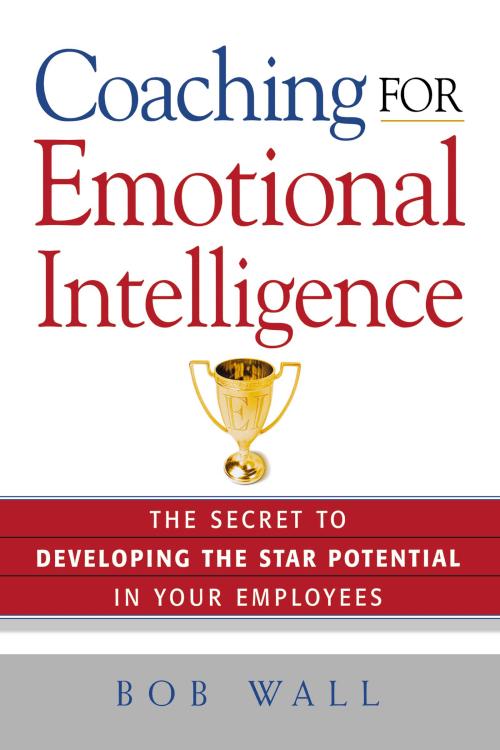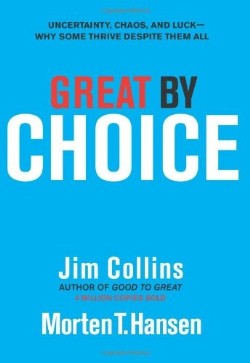Coaching For Emotional Intelligence
$18.95
At some point in their careers, all managers face a frustrating and seemingly insurmountable challenge — the highly intelligent, highly skilled direct report who is failing when he should be excelling. Often, this employee is destroying not only his own career, but also the morale of the rest of the team. While this behavior may initially seem willful, it is more than likely due to a lack of emotional intelligence — the ability to comprehend one’s emotions, empathize with the feelings of others, and interact with people in ways that promote congenial working relationships. More than any other trait, emotional intelligence is the one variable that can transform a mediocre employee into an exceptional one. Managers now have a new and demanding role. They must become coaches who help their employees to develop emotional intelligence and the positive interpersonal relationships that result. And while this kind of corrective coaching may seem daunting and unpleasant to many managers, it is also achievable with the right tools. In Coaching for Emotional Intelligence, Bob Wall offers coaching strategies that will enable every manager to elicit excellence by improving the negative behaviors and communications flaws that are undermining an employee’s performance. The book provides a structured format for formulating and delivering both praise and corrective feedback, as well as a step-by-step method and sample scripts for conducting a coaching session. Readers will: Overcome the fear of coaching on sensitive, personal issues. Learn the critical importance of praise–and how to give it. Understand the influences that shaped the behaviors of the individual being coached. Determine whether an employee is responding to corrective coaching, when to keep him — and when to fire him. Create an action plan for teaching employees to identify and alter unwanted behavior. Master spontaneous coaching: delivering praise in 15-20 seconds — and corrective feedback within 45 seconds. Formulate structured conversations when corrective coaching isn’t working. Create successful, detailed, and clear personal, team, and work evaluations and mission statements. The first book of its kind, Coaching for Emotional Intelligence is a thoughtful, realistic, and accessible guide that will change the way managers lead in the workplace — and will ensure that their employees are reaching their full potential.
in stock within 3-5 days of online purchase
SKU (ISBN): 9780814433782
ISBN10: 0814433782
Bob Wall
Binding: Trade Paper
Published: October 2006
Publisher: AMACOM – Harper Collins Publishers
Print On Demand Product
Related products
-
7 Last Words
$18.99Based on his talks at New York’s St. Patrick’s Cathedral on Good Friday 2015, the New York Times bestselling author and editor at large of America magazine offers a portrait of Jesus, using his last words on the cross to reveal how deeply he understood our predicaments, what it means to be fully human, and why we can turn to Christ completely, in mind, heart, and soul.
Each meditation is dedicated to one of the seven sayings:
*”Father, forgive them, for they do not know what they do.”
*”Today you will be with me in Paradise.”
*”Woman, this is your son” . . . “This is your mother.”?
*”My God, my God, why have you forsaken me?”?
*”I thirst.”?
*”It is finished.”?
*”Father, into your hands I commend my spirit.”With the warmth, wisdom, and grace that infuse his works, Father James Martin explains why Jesus’s crucifixion and death on the cross is an important teaching moment in the Gospels. Jesus’s final statements, words that are deeply cherished by his followers, exemplify the depth of his suffering but also provide a key to his empathy and why we can connect with him so deeply.
Add to cart1 in stock
-
Great By Choice
$29.99The new question
Ten years after the worldwide bestseller Good to Great, Jim Collins returns with another groundbreaking work, this time to ask: Why do some companies thrive in uncertainty, even chaos, and others do not? Based on nine years of research, buttressed by rigorous analysis and infused with engaging stories, Collins and his colleague, Morten Hansen, enumerate the principles for building a truly great enterprise in unpredictable, tumultuous, and fast-moving times.The new study
Great by Choice distinguishes itself from Collins’s prior work by its focus not just on performance, but also on the type of unstable environments faced by leaders today.With a team of more than twenty researchers, Collins and Hansen studied companies that rose to greatness-beating their industry indexes by a minimum of ten times over fifteen years-in environments characterized by big forces and rapid shifts that leaders could not predict or control. The research team then contrasted these “10X companies” to a carefully selected set of comparison companies that failed to achieve greatness in similarly extreme environments.
The new findings
The study results were full of provocative surprises. Such as:The best leaders were not more risk taking, more visionary, and more creative than the comparisons; they were more disciplined, more empirical, and more paranoid.
Innovation by itself turns out not to be the trump card in a chaotic and uncertain world; more important is the ability to scale innovation, to blend creativity with discipline.
Following the belief that leading in a “fast world” always requires “fast decisions” and “fast action” is a good way to get killed.
The great companies changed less in reaction to a radically changing world than the comparison companies.
The authors challenge conventional wisdom with thought-provoking, sticky, and supremely practical concepts. They include: 10Xers; the 20 Mile March; Fire Bullets, Then Cannonballs; Leading above the Death Line; Zoom Out, Then Zoom In; and the SMaC Recipe.Finally, in the last chapter, Collins and Hansen present their most provocative and original analysis: defining, quantifying, and studying the role of luck. The great companies and the leaders who built them were not luckier than the comparisons, but they did get a higher Return on Luck.
This book is classic Collins: contrarian, data-driven, and uplifting. He and Hansen show convincingly that, even in a chaotic and uncer
Add to cart1 in stock
















Reviews
There are no reviews yet.